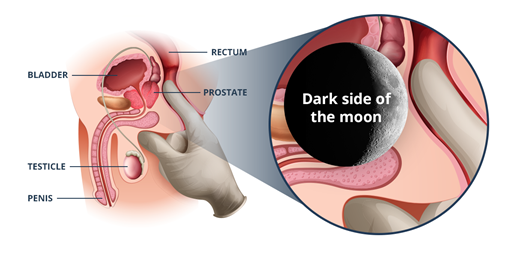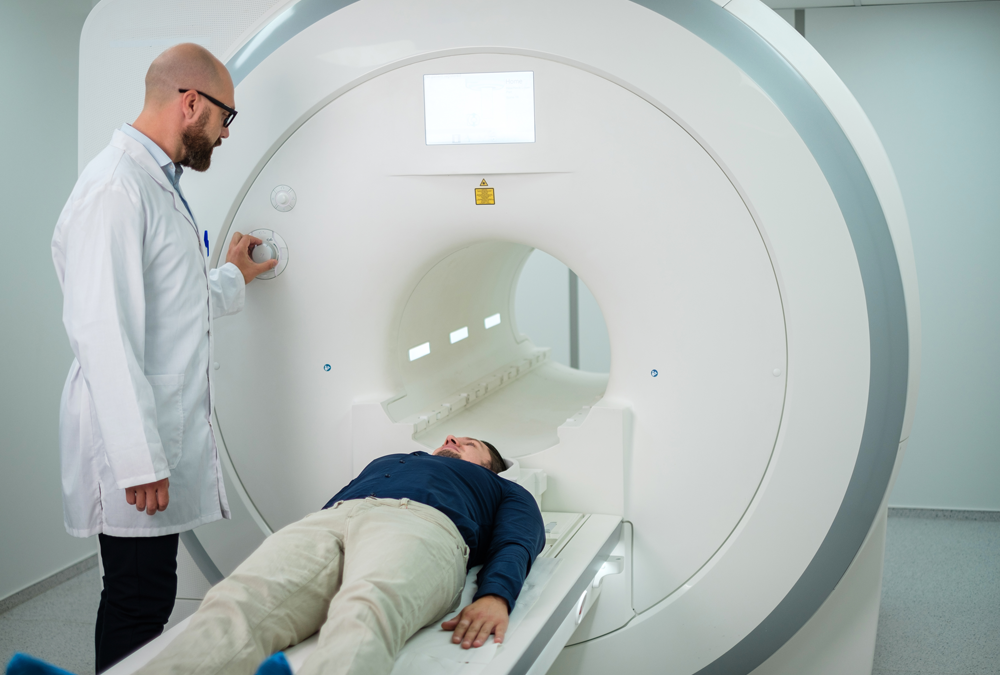Prostate cancer is the second most common form of cancer in men. One in nine men is diagnosed with prostate cancer in their lifetime, and for African-Americans, it’s one in six. This is why proactive screening of the prostate is so important.
Busch Center’s location is a strategic one. As a state, Georgia ranks among the highest in the nation for incidents of prostate cancer, and we’re determined to see men make regular prostate screenings a part of their normal routine. We believe just like mammograms were life-changing for women in the 1970’s, prostate “mannograms” will soon be life-changing for men. Here’s what every man should know about prostate screenings.
1. Early prostate cancer detection is key for successful treatment.
When prostate cancer is detected early, it’s typically treatable without causing permanent side effects or changes to normal body functions. First, we’re able to prevent cancer from spreading to other parts of the body, such as the bones, brain, liver, or other organs. Once the cancer spreads outside of the prostate, it’s harder to treat and can be life-threatening. Second, we can treat the parts of the prostate affected by the cancer without removing the prostate. Unnecessary prostatectomies can cause lifelong side effects such as impotence and incontinence.
2. Early detection can be difficult with typical screening methods.
Prostate cancer is frequently asymptomatic but can become serious or spread to other parts of the body. This is why it’s so important to be proactive with monitoring the health of your prostate.
Traditional methods of screening for prostate cancer are, unfortunately, dictated by insurance companies. They are often invasive, painful, and many times, ineffective, since these methods can leave cancer undetected. Typical methods are:
Digital Rectal Exams–A doctor performs digital rectal exams (DREs) by inserting a lubricated, gloved finger into the rectum to feel the prostate. In addition to being uncomfortable, DREs aren’t able to examine 60% of the prostate leading to possible cancers being missed.

PSA Level Checks–Prostate-Specific Antigen (PSA) is a protein produced by normal as well as malignant cells of the prostate gland. PSA tests measure the amount of PSA in a man’s blood. Finding elevated PSA levels in the blood is not an accurate marker for cancer. Benign conditions such as inflammation, BPH (Benign Prostatic Hyperplasia), and testosterone therapy can cause elevated PSA levels. Also, cancer may still be present without elevated PSA levels. For these reasons, solely relying on PSA as an indicator is ineffective.
3. A Biparametric MRI is the best method of screening and detection.
Advanced Biparametric MRI technology allows men to be screened accurately and non-invasively. The screening is performed with the patient comfortably lying back in the MRI machine and a technician available by two-way intercom. The procedure is simple and painless, and it only takes around 30 minutes. The scan provides earlier, more accurate diagnosis of prostate cancer, leading to better outcomes. It detects cancer at a 90% accuracy with no needles, no contrast, and no side effects. It also reduces the need for random, blind prostate biopsies.
Busch Center provides Biparametric MRI prostate screening to any man concerned about his prostate health or who wants to be proactive. Men who have a history of prostate cancer in their families should especially consider regular MRI screenings. In addition to the MRI, we have a visible radiologist on site who will review the results following a scan, eliminating the wait time for results. Screening results are also reviewed in-person by Dr. Busch and discussed with every patient for individual recommendations.
Contact us to schedule your “mannogram.”

